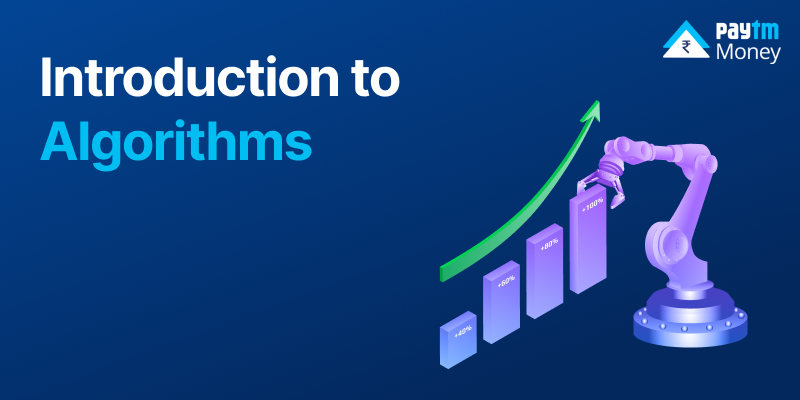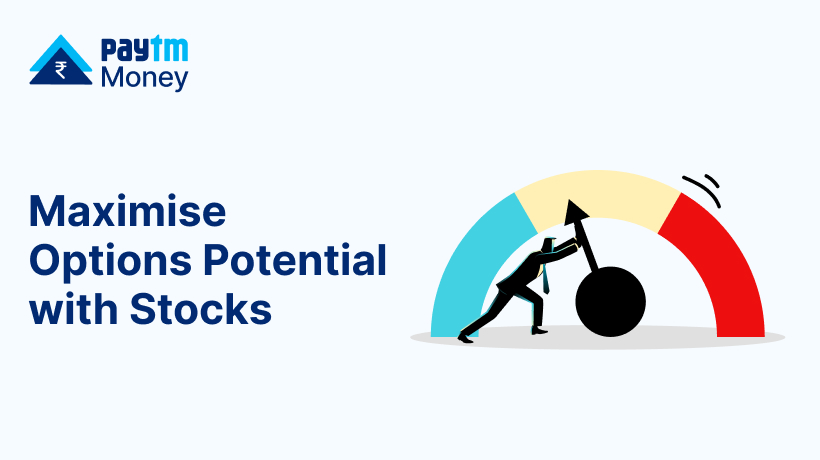Introducing Algorithms3 min read
In recent times, with advancements in technology such as affordable computers, better connectivity and accessibility, the financial market trading has experienced a massive upheaval.
Currently, algorithmic trading accounts for nearly half of all F&O trades and about a third of all trades in India. Out of the total, 70% of trades in industrialized countries are algorithmic and technical trades are generated by programmed algorithms. Since the technology required for algorithmic trading is difficult and expensive, hedge funds, option strategists, jobbers, scalpers, and arbitrageurs are the key users.
Understanding statistics and programming as well as financial expertise are essential for success in this discipline.
What is an Algorithm?
A pre-defined step-by-step method to accomplish a task. A computer model that takes an order and structures a sequence of trades that aim to achieve the stated objectives. Algorithms are productivity tools.
Algorithmic trading uses a computer program that follows a defined set of instructions (an algorithm) to place a trade. The trade in theory, can generate profits at a speed and frequency that is impossible for a human trader.
Algo trading has been playing an important role in the modern landscape of financial technologies and services. This article discusses the nine contemporary challenges that algo trading faces and focuses primarily on the markets in the United States. These challenges call for either strategic revamping or more intelligent data analytics and more concerned with risk control or robust testing and support framework
History of Algorithmic Trading:
The Algo trading in India started in 2008 when SEBI allowed DMA (Direct Market Access) for the first time in India. Credit Suisse’s Advanced Execution Services (AES) were the first to launch Algo Trading in Indian equities on 22nd August 2009. It was aimed at reducing the time taken in the transmission of data from broker terminals to exchange servers. In August 2017, the utmost 50% of trading in capital markets happen through Algos. It has evolved in recent years by introducing different types of Algo Trading Strategies.
Types of Algorithms:
Classified In stages:
- Pre-trade Analytics
This involves a thorough analysis of historical data and volume data and current price to determine where and when to send the orders.
- Execution Stage
At this stage, traders create the list of stocks, choose a particular strategy and get
the exact levels to trade, and the order get executed through the automatic algorithm.
- Post-trade Analytics
It tracks commissions and assists in uncovering the costs involved from trade initiation to order execution.
Benefits of Algorithmic Trading:
- Trades are carried out at the lowest possible cost.
- Placement of trade orders is fast and precise (there is a high chance of execution at the predetermined price levels).
- Trades are executed on schedule and in real-time to avoid substantial price fluctuations.
- Transactional expenses are low.
- Automated checks on multiple trading opportunities at the same time, thus increasing diversification.
- Human error is less likely to occur when placing transactions.
- Algo-trading strategy is always back-tested using historical and real-time data to see check its feasibility.
- Reducing the risk of human traders making mistakes due to emotional and psychological variables.
- Easy to execute complex trading strategies with certainty.
Technical Requirements for Algorithmic Trading:
- Computer programming understanding, require hired programmers, or pre-made trading software to program the appropriate trading strategy.
- Access to trading platforms and network connectivity to place orders.
- Access to market data feeds that the algorithm will monitor for order placement chances.
- The ability and infrastructure to back-test the system after being constructed before it goes live on live markets.
- Depending on the intricacy of the rules employed in the algorithm, historical data should be available for back-testing.
Disclaimer: Investments in securities market are subject to market risks, read all the related documents carefully before investing. This content is purely for information and investor awareness purpose only and in no way to be considered as advice or recommendation. Paytm Money Ltd SEBI Reg No. Broking – INZ000240532. NSE (90165), BSE(6707) Regd. Office: 136, 1st Floor, Devika Tower, Nehru Place, Delhi – 110019.




